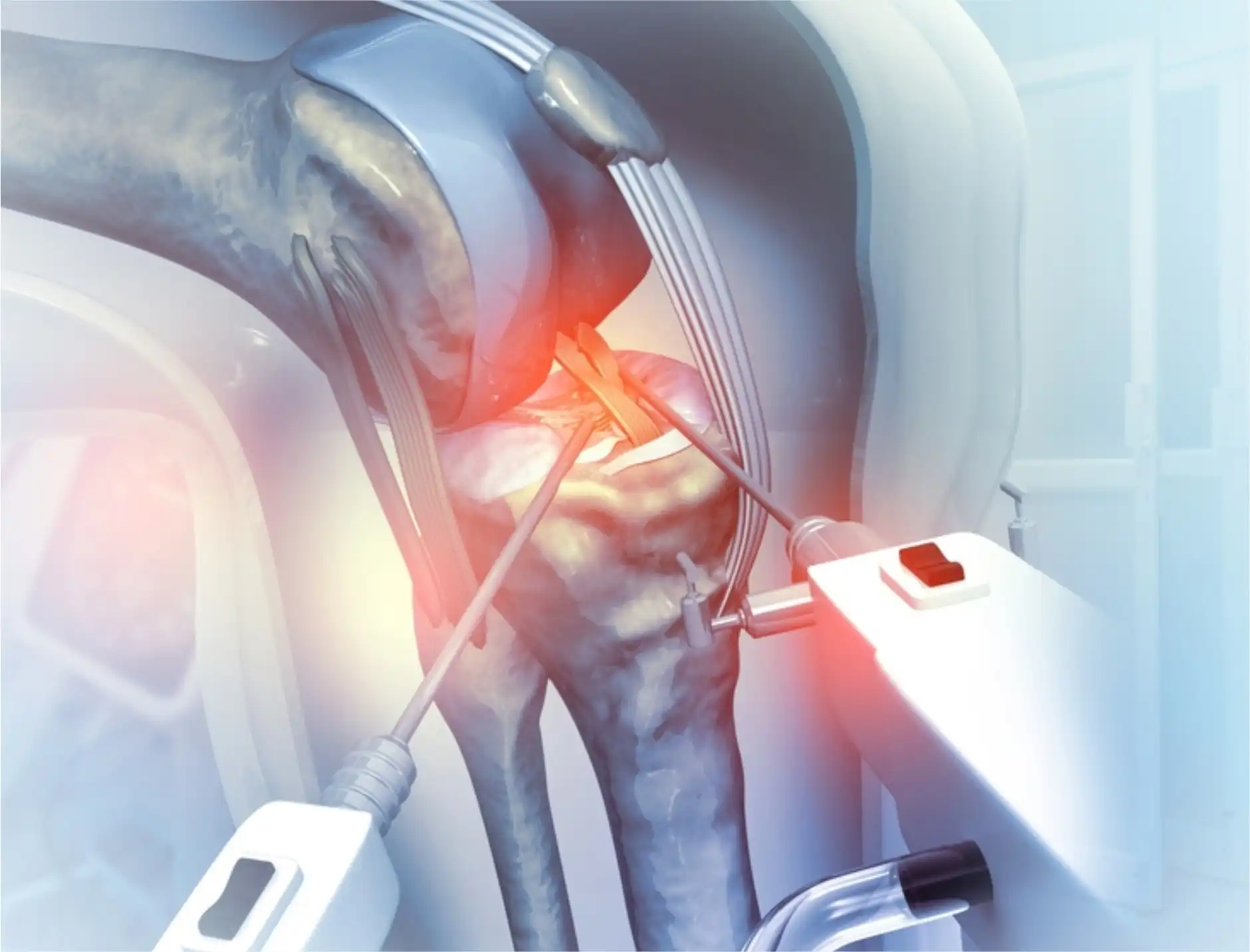Should You Get a Partial or Full Knee Replacement Surgery?
Home > Blogs > Should You Get a Partial or Full Knee Replacement Surgery?



Knee pain, often caused by osteoarthritis, injury, or age-related degeneration, can significantly impact your quality of life. For many individuals, conservative treatments like physical therapy and medication provide relief. However, for those with advanced knee issues, surgery may become the best option. When it comes to knee replacement surgery, patients are often faced with the question: should I opt for a partial or full knee replacement? In this blog, we’ll discuss the differences between these two options and help you make an informed decision with insights from Aayush Hospitals, one of the best orthopaedic hospitals in Mehsana.
Understanding Knee Replacement Surgery
Knee replacement surgery involves removing damaged sections of the knee joint and replacing them with prosthetic components. There are two main types of knee replacement surgeries:
Both procedures aim to relieve pain, improve mobility, and restore function, but which one is right for you? Let's break down the differences.
When Should You Consider a Partial Knee Replacement?
A partial knee replacement (also known as a unicompartmental knee replacement) is an option when only one part of the knee joint is damaged. This procedure is ideal for individuals with localized arthritis or damage in a specific compartment of the knee, such as the medial, lateral, or patellofemoral compartment.
Advantages of Partial Knee Replacement:
Less Invasive: Since only the damaged part of the knee is replaced, the surgery is less invasive than a full knee replacement.
Faster Recovery: With less tissue disruption, recovery time is usually quicker compared to a total knee replacement.
Preservation of Healthy Tissue: The healthy portions of the knee are left intact, which can result in a more natural feel and better range of motion after surgery.
More Natural Knee Function: Partial knee replacements often result in a more natural knee movement, as the surgery preserves the healthy parts of the joint.
If you qualify for a partial knee replacement, it can be an excellent choice for those who are experiencing pain in only one section of the knee. At Aayush Hospitals, we advocate for #RepairOverReplace whenever possible, offering advanced techniques that help preserve as much of your natural knee as possible while still achieving long-term pain relief.
When Should You Opt for a Full Knee Replacement?
A full knee replacement (also known as total knee arthroplasty) is typically recommended when the entire knee joint is affected by arthritis or damage. This procedure replaces all three compartments of the knee joint: the medial, lateral, and patellofemoral.
Advantages of Full Knee Replacement:
Suitable for Advanced Arthritis: If your knee arthritis is widespread, a full replacement may be the most effective option.
Long-Term Relief: A total knee replacement is known for providing significant long-term relief for patients with extensive joint degeneration.
Improved Stability: Full knee replacements are ideal for those who require more stability in their knee joint due to severe wear.
While the recovery time for a full knee replacement is typically longer than a partial knee replacement, it can provide excellent results for those with severe damage to their knee joint.
Which Option Is Right for You?
Deciding between a partial and full knee replacement depends on several factors:
Extent of Joint Damage: If only one part of the knee is affected, a partial knee replacement may be appropriate. However, if all compartments are damaged, a full knee replacement may be necessary.
Age and Activity Level: Younger, more active individuals with partial joint damage may benefit from a partial replacement to preserve more natural knee function. Older individuals or those with more significant joint degeneration may be better suited for a total knee replacement.
Overall Health: Your general health and ability to recover from surgery are also crucial factors. Your orthopaedic doctor will evaluate your overall health and recommend the best course of action.
Why Choose Aayush Hospitals for Knee Replacement Surgery?
At Aayush Hospitals, we are proud to be recognized as one of the best orthopaedic hospitals in Mehsana. Our experienced orthopaedic doctors in Mehsana specialize in knee replacement surgeries, providing personalized treatment plans for each patient. Whether you're considering a partial or full knee replacement, our team of experts will guide you through the decision-making process and ensure you receive the most appropriate treatment.
Expert Care from the Best Orthopaedic Surgeons in Mehsana
Our best orthopaedic surgeons in Mehsana have extensive experience in knee replacement surgery, using advanced techniques to ensure the best outcomes. We understand that every patient is unique, and we take a personalized approach to treatment, ensuring that you receive the care that suits your individual needs and lifestyle.
Conclusion
Choosing between partial and full knee replacement surgery depends on the extent of the damage to your knee joint. If you qualify for a partial knee replacement, it offers several benefits, including faster recovery and better preservation of natural knee function. However, if your knee arthritis is widespread, a full knee replacement may be the better choice. At Aayush Hospitals, our team of experienced orthopaedic doctors and best orthopaedic surgeons in Mehsana will help you make an informed decision and provide you with the best care possible.
Contact us today to schedule a consultation and take the first step toward a pain-free future.